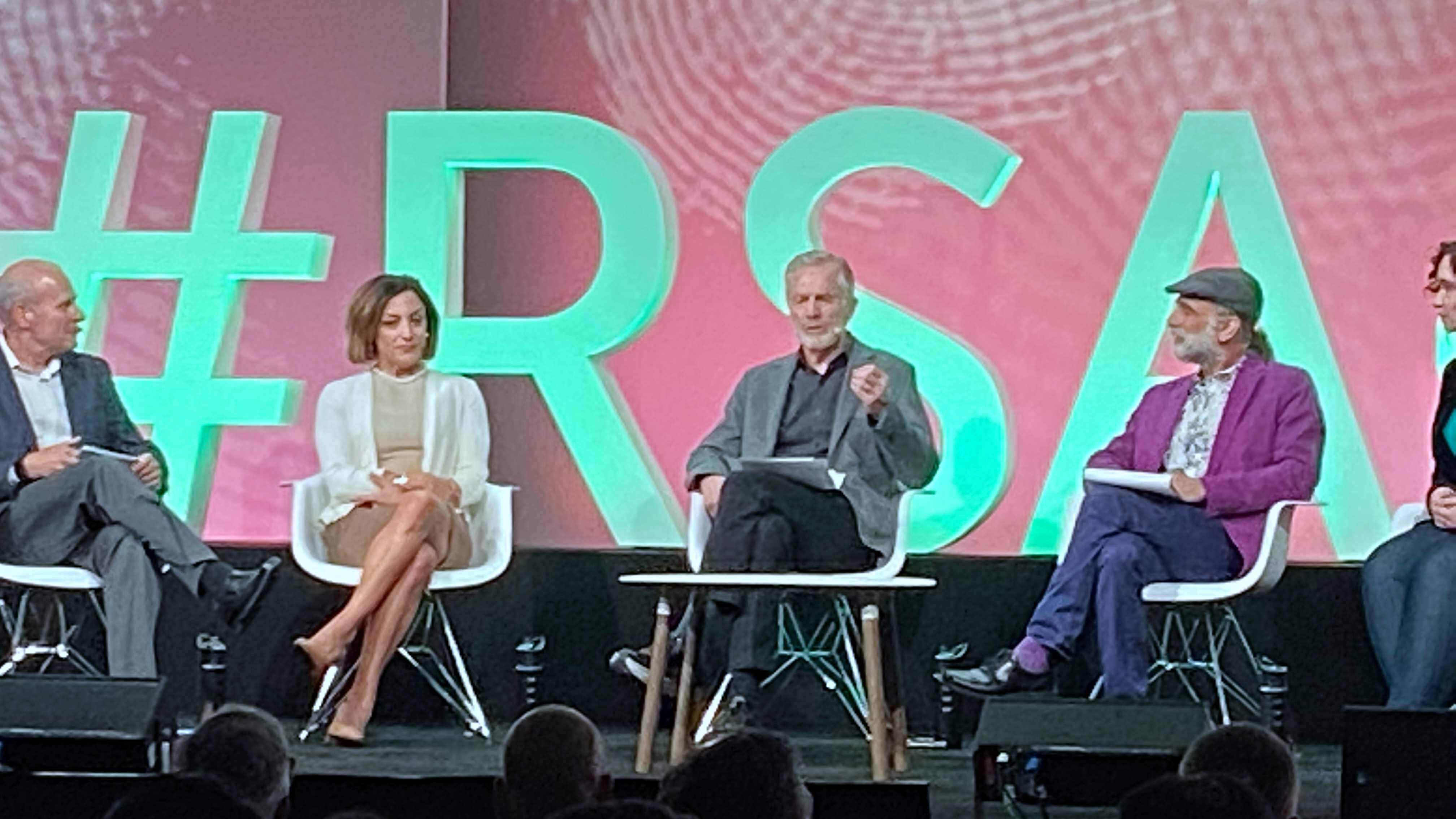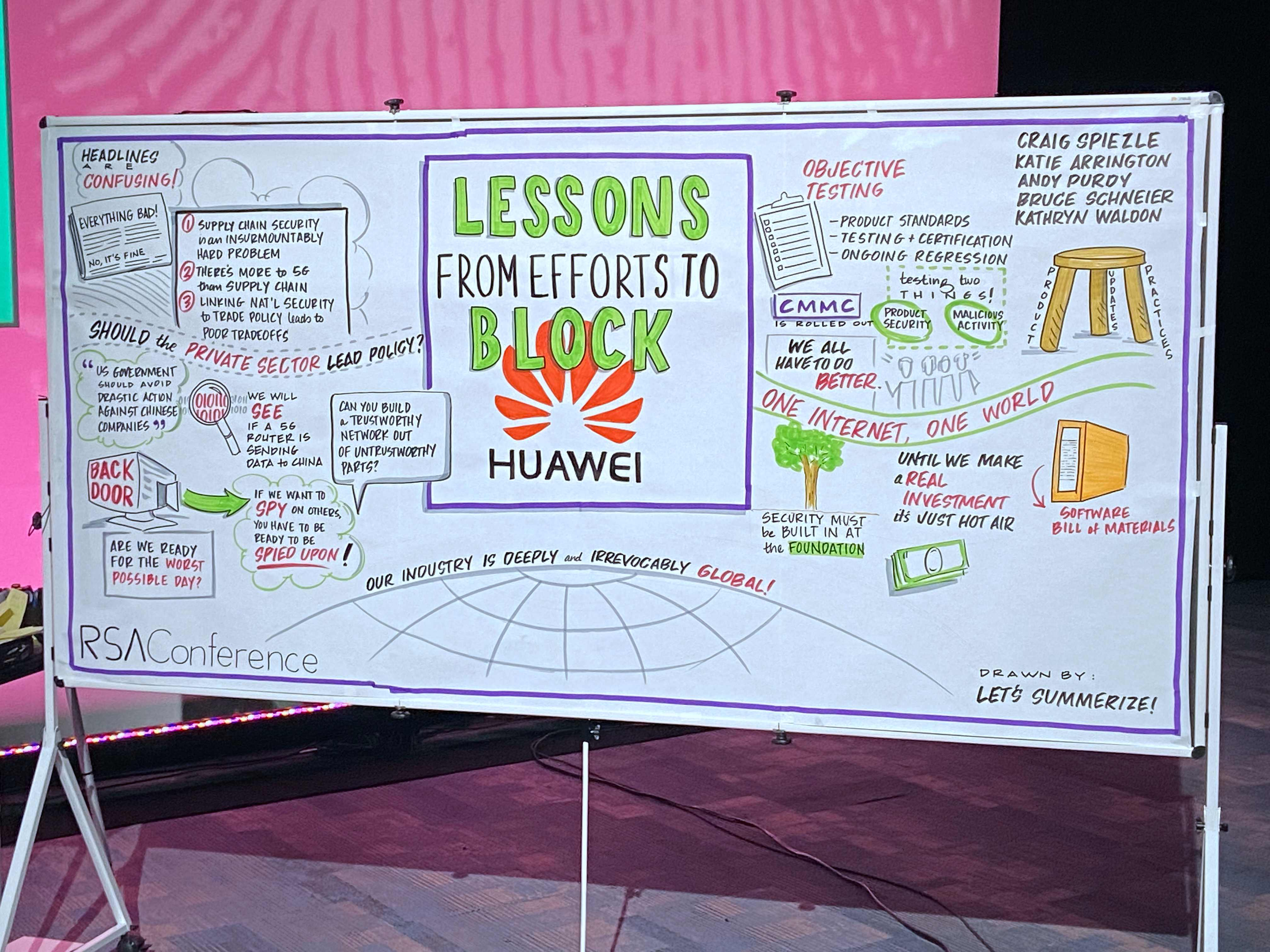02:43

The RSA Conference is the biggest cybersecurity conference in the United States, but this year, it came under threat from the COVID-19 outbreak.
U.S. carrier Verizon pulled out from being a sponsor, and heavyweight tech giants like IBM & AT&T Cybersecurity refrained from participating as well.
But there's one company that made a significant mark – Huawei – a Chinese company that has been under the microscope by the U.S. government.
The U.S. has banned Huawei from U.S. government contracts.
And just this week the U.S. Federal Communications Commission began studying how much equipment in U.S. telecom networks is made by Huawei and fellow Chinese company ZTE.
That's why it was so surprising that Huawei Technologies USA Chief Security Officer Donald Purdy appeared in a panel discussion with the Cyber Information Security Officer of Acquisitions for the U.S. Department of Defense Katie Arrington.
"This is the first time in my seven and a half years at Huawei that a government person was willing to be on a panel with me. I'm really kind of astounded that the panel was allowed to happen," Purdy told me. "All in all I was pleased about the conversation because we were able to talk about what we were trying to do in terms of global standards."
Purdy has a unique background.
He was the senior cybersecurity official of the U.S. government from 2004 to 2006 in the George W. Bush administration. Purdy served on the White House staff where he helped draft the National Strategy to Secure Cyberspace.
He later worked for the Department of Homeland Security where he helped form and lead the National Cyber Security Division and the U.S. Computer Emergency Readiness Team.

The whiteboard from the RSA Conference session – How to Reduce Supply Chain Risk: Lessons from Efforts to Block Huawei. Mark Niu/CGTN
The whiteboard from the RSA Conference session – How to Reduce Supply Chain Risk: Lessons from Efforts to Block Huawei. Mark Niu/CGTN
That led to some passionate arguments on stage.
Recently, Huawei has indicated it would be willing to license its technology to U.S. companies.
"If the U.S. needs its own telecom equipment provider, why in the world wouldn't the U.S. call Huawei's bluff for the offer to license our 5G technology?" Purdy directed at Arrington. "Why wouldn't you at least have those conversations?"
Huawei is widely viewed as having a big technical lead over any company in the world in the area of 5G network infrastructure.
But that wasn't enough to convince Arrington, who repeatedly said her department had to follow the law based on information they've discovered – much of which remains classified.
At several points during the discussion, things got heated, leaving Arrington to raise her voice in defense of her department's exclusion of Huawei's technology.
"I'm not going to put it in my networks. I'm not going to put it in the stuff I'm responsible for. Period!" she fired back at the panelists on stage.
Speaking on behalf of the Department of Defense, she said it was just too much of a risk to allow Huawei products in their systems.
"But when you have a product that could take over, run, manipulate the most critical things in our country, why would you not want to be sure that company has all the right philosophical endeavors, to which – they don't," said Arrington on stage.
One of the key discussions centered on whether the U.S. government was making its decisions to ban Huawei technology based on security or trade politics.
"The geopolitical situation between the U.S. and China has created a context in which the U.S. is unwilling to have conversations with Huawei about the benefits of technology and the consequences of technology and what can be done to mitigate the risk," Purdy told me. "So it's that context that is affecting things and right now the U.S. is taking steps to hurt China by hurting Huawei and they are actually hurting Americans more."
Moderator Craig Spiezle, the founder of Agelight Advisory & Research Group, was satisfied that the panel managed to create a lively discussion with diverse viewpoints.
"I will tell you that there were some people that were surprised and there were some people who reached out to me that we should change the panel because they didn't feel that they should have the U.S. government on the same stage as Huawei. But that didn't directly come from anyone in the administration," said Spiezle. "I think it was really good because I think we need to have these discussions to help clarify the facts, to end up so people make their own decisions."